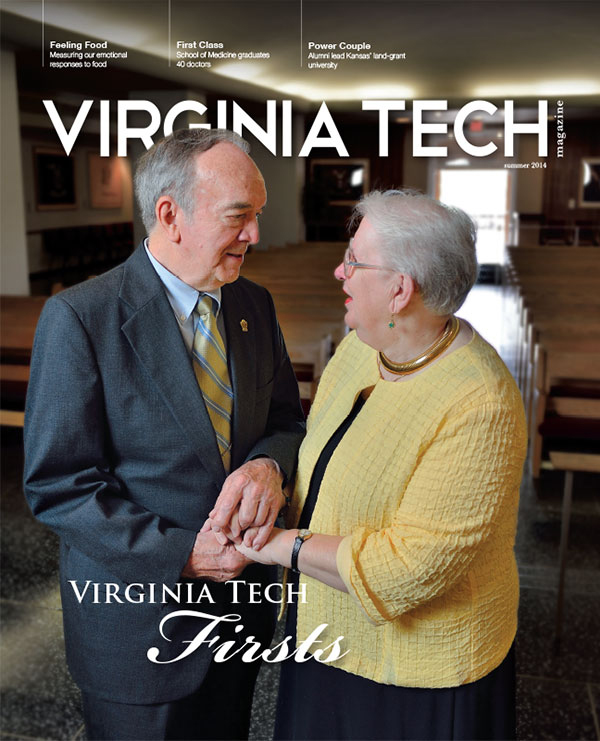Virginia Tech Magazine revisits firsts in the university's history

Virginia Tech awarded its first bachelor's degree in 1883, and its first commencement exercises in 1873 included no graduates—but lasted four days.
From the university's first enrolled student in 1872, to the first couple married in the War Memorial Chapel in 1960, to the first performance in the Moss Arts Center in 2013, the summer edition of Virginia Tech Magazine uncovers the earliest instances of an array of Hokie traditions and campus events.
On the heels of Virginia Tech Carilion School of Medicine's first graduation in May, the Roanoke school's newest alumni consider their time as the inaugural class, evaluate its innovative problem-based curriculum, and explain how Ut Prosim (That I May Serve) applies to doctors.
Having met in 1984 as students, Virginia Tech alumni Kirk Schulz, who was named Kansas State University president in 2009, and his wife, Noel, a professor and associate dean for research and graduate programs at Kansas State, have made a career of supporting each other.
Commemorating the 50th anniversary of the Civil Rights Act of 1964 and as part of Virginia Tech's Black Alumni Reunion weekend in March, a campus webinar featured four black alumni who spoke about their experiences integrating the university in the late 1960s and early 1970s.
And the latest installment of How Tech Ticks visits a lab in Virginia Tech's new Human and Agricultural Biosciences Building I, where students and professors are building the foundations of a new research field that measures how and why people react emotionally to food.
The Web version of Virginia Tech Magazine features online-only multimedia content. Request hard copies by emailing magazine editor Jesse Tuel.
Dedicated to its motto, Ut Prosim (That I May Serve), Virginia Tech takes a hands-on, engaging approach to education, preparing scholars to be leaders in their fields and communities. As the commonwealth’s most comprehensive university and its leading research institution, Virginia Tech offers 240 undergraduate and graduate degree programs to more than 31,000 students and manages a research portfolio of $513 million. The university fulfills its land-grant mission of transforming knowledge to practice through technological leadership and by fueling economic growth and job creation locally, regionally, and across Virginia.











